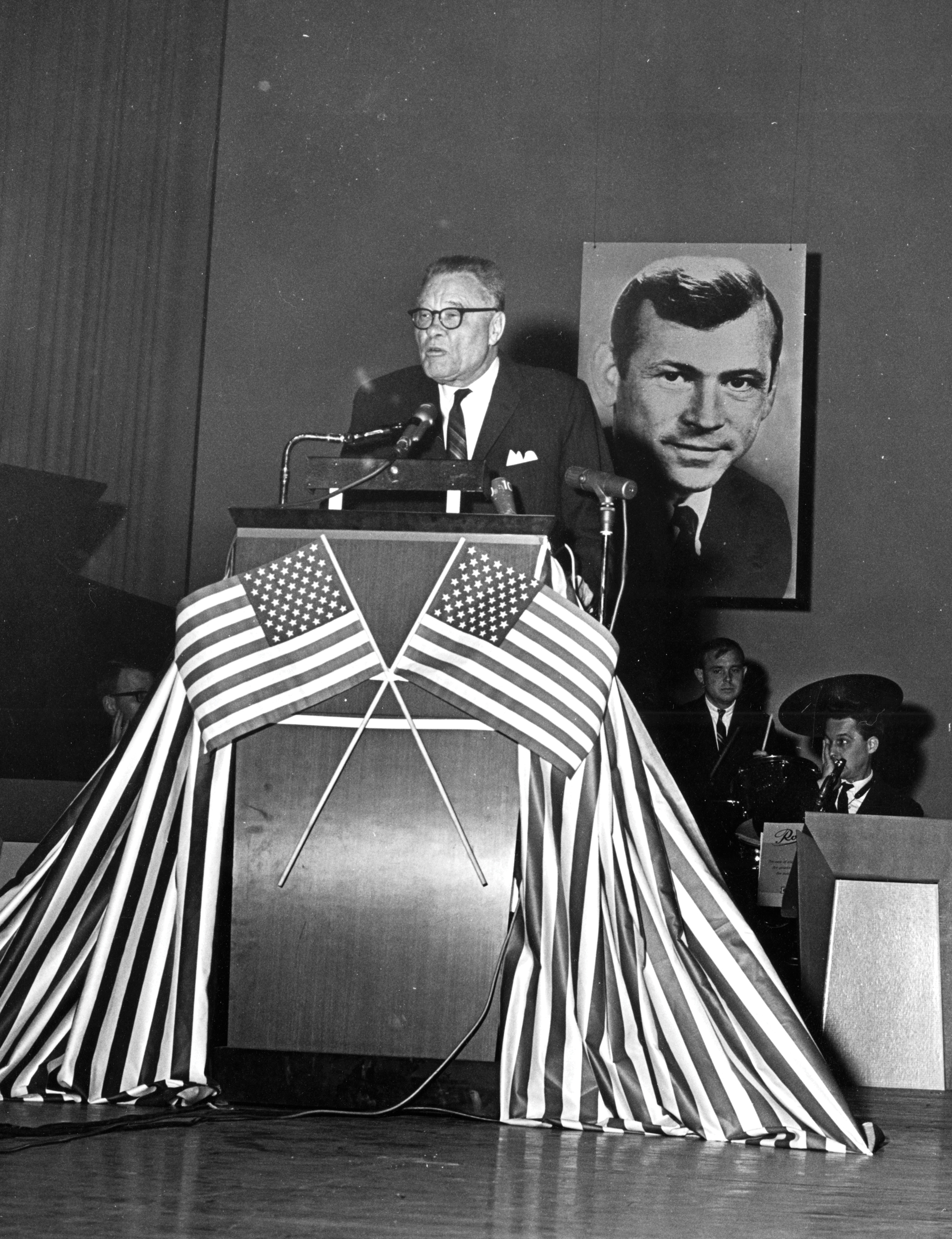
Everyone knew the suspect well—a drunk farmer who lived with his younger wife in Tellico Plains, Tennessee. She’d been beaten to death with a barrel stave, and authorities found her body lying next to her sleeping husband.
Ray Jenkins was the attorney who defended the suspect, who claimed not to remember the murder. The prosecutor and townspeople demanded the death penalty. An eye for an eye, after all.
During the trial’s closing arguments, Jenkins gripped a Bible as tears streamed down his cheeks and sweat drenched his body, and he argued that no man should be killed for a drunken, jealous rage. He turned to the jury and asked, “Who among you, pray tell, is willing to pull the switch and send twenty-three hundred volts of electricity through the body of a fellow man?”
The jury sentenced the husband to 99 years.
Jenkins defended more than 600 homicide suspects throughout his career. None received the death penalty. His dramatic courtroom displays earned him the nickname “Terror of Tellico Plains,” which later became his autobiography’s title.
Before practicing law, Jenkins worked as a shoe-shiner, lumberjack and coal miner. He fought against Mexican Revolutionist Pancho Villa with the U.S. Army in 1916, then enlisted in the U.S. Navy to fight during World War I. After the war, he graduated with honors from the University of Tennessee College of Law.
In 1954, the U.S. Senate appointed Jenkins chief counsel to its subcommittee conducting the Army-McCarthy hearings. The case hearings were nationally televised, and the nation watched Jenkins question Sen. Joseph McCarthy and Secretary of the Army Robert Stevens. Jenkins’ work earned him the cover of Time magazine on May 17, 1954.
Jenkins published his autobiography, The Terror of Tellico Plains, in 1979. Jenkins died in Knoxville in 1980.


